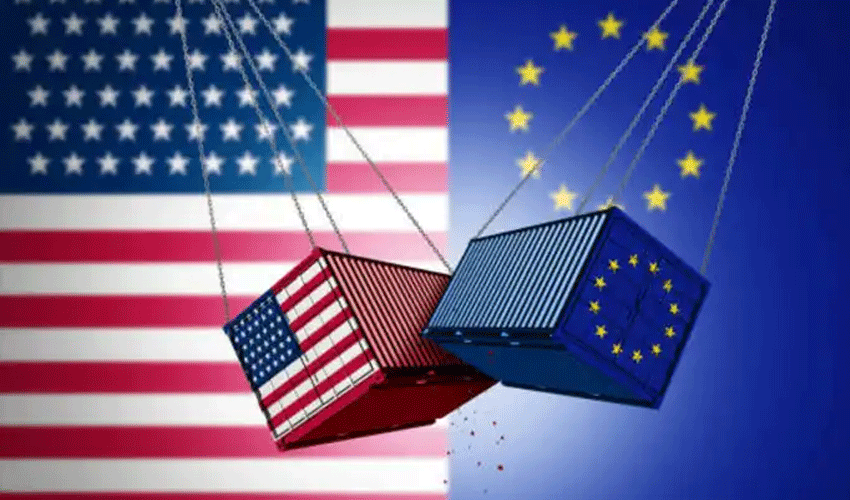US President Donald Trump has consented to postpone a 50 percent tariff on imports from the European Union until July 9, attributing the decision to a “very nice call” with European Commission President Ursula von der Leyen.
Speaking to reporters at Morristown Municipal Airport in New Jersey on Sunday, Trump stated that the delay was granted at von der Leyen’s request, adding that both parties intend to resume negotiations promptly. “She said she wants to get down to serious negotiation,” Trump remarked. “July 9 would be the day, that was the date she requested. Could we move it from June 1 to July 9? I agreed to do that.”
This move represents another instance where Trump has initially announced significant tariffs only to subsequently scale them back, a recurring pattern that has periodically introduced instability into global markets and among trading partners. As recently as Friday, Trump had asserted he was “not looking for a deal” with the EU and that the 50 percent tariff would be implemented on June 1.
However, within minutes of his Sunday remarks, Trump reiterated his stance in a post on his social media platform, Truth Social, affirming that “talks will begin rapidly.”
Von der Leyen, in an earlier post on X (formerly Twitter), characterized the phone conversation as “good,” underscoring the mutual importance of the transatlantic trade relationship. “Europe is ready to advance talks swiftly and decisively,” she stated. “To reach a good deal, we would need the time until July 9.”
This latest development appears to offer temporary relief for European exporters, though uncertainty persists regarding the long-term trajectory of US-EU trade relations. Trump has frequently criticized what he refers to as “non-monetary trade barriers” and has expressed frustration with countries or blocs that maintain trade surpluses with the United States.
According to data from the US Commerce Department, the US recorded a $236 billion trade deficit with the EU in 2024. While Trump has endeavored to rebalance trade relationships through the imposition of tariffs, his approach has drawn criticism from some business leaders and economists, who argue that it introduces unpredictability into the global economy.
Stock markets in Asia exhibited a modest response to the news of the delay. Japan’s benchmark Nikkei 225 rose 0.8 percent in early trading on Monday, while South Korea’s KOSPI gained 0.9 percent. China’s Shanghai Composite Index edged up 0.3 percent. Markets in Taiwan and Australia traded flat, whereas Hong Kong’s Hang Seng Index slipped 0.3 percent.
Separately, Trump also weighed in on recent remarks by Treasury Secretary Scott Bessent, who suggested that the US should not prioritize the revival of textile manufacturing. Trump indicated that he “tended to agree” with Bessent’s position.
“We’re not looking to make sneakers and t-shirts,” Trump said. “We want to make military equipment. We want to make big things. We want to do the ‘AI thing’ with the computers



